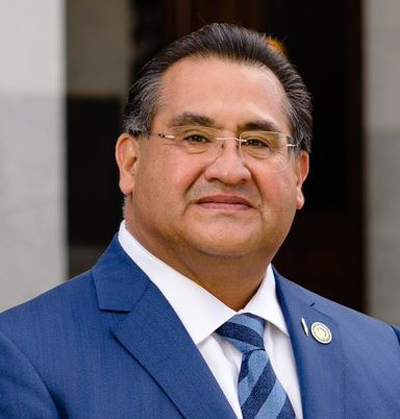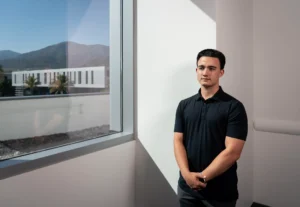Mental health remains a top priority
3 min read
By Assemblymember James C. Ramos
There have been a wide range of uncertainties associated with the pandemic, and the impacts it has had on mental health. Even as we begin to see the “light at the end of the tunnel,” these lingering feelings of uncertainty have further complicated the already difficult issue of mental health within our behavioral health system, communities and families. Questions like: How do we navigate the long-term impacts of the pandemic on mental health? How do we address inequities among individual care that have caused a divide in the healthcare community? How do we confront the various types of mental illness concerns within our health system, the family unit, and the broader community? These questions are some of the components that I am working to address in my 2021 Mental Health Package proposal.
As many of us are aware, isolation due to virus precautions throughout the past year has exacerbated today’s broad mental health challenges statewide. Those who have suffered and continue to suffer in silence pose a troubling risk of substance abuse, more frequent domestic violence occurrences, and suicidal tendencies. Increasing suicide rates in many areas of California, perpetuated by the pandemic, have further prompted the need for better coordination and a more aggressive approach to suicide prevention. Our youth are especially vulnerable in this pandemic, as they’ve been forced to function in a predominately cyber world as a result of Covid-19.
The need for more stringent measures to ensure the health and safety of our youth and community was why The Office of Suicide Prevention (AB 2112) was signed into law in 2020. The Office of Suicide Prevention was developed to operate specifically within the State Department of Public Health, increasing suicide prevention measures across the state of California. Suicide is now widely recognized as a public health crisis. When I first ran for Assembly in 2018, youth suicides were taking place in my district and I wanted more preventative action to be taken. This is why I ran for the office of the Assembly because laws are created in Sacramento. I understood the sense of urgency and cries of our community members and families that have suffered loss and are looking for a greater sense of hope for their loved ones.
Among many of the obstacles that exist when it comes to mental health conditions, there’s the underlying stigma that’s often associated with the condition. Behavioral health experts agree that this plays a significant role in a person’s missed opportunities for proper treatment. Many individuals struggling with mental health conditions find themselves caught between feelings of silent shame, and cries for help.
My hope is to work to change the social perception of mental health, which can aid in helping individuals struggling with various mental health conditions to feel safe and compelled to get the help that they truly need. My overall hope is to get in front of the problem with funding, the development of effective and strategic data systems and capacity building, while working to augment lawmaker’s prior legislation with my 2021 Mental Health Package. The components of the package include: the development of the 988 Suicide Lifeline system, which will direct crisis calls to the national hotline and crisis center to ensure that a quick response is available when there’s an urgent need. Another component includes funding specifically for children’s crisis residential programs, providing critical mental health services and ensuring availability of these services to youth.
The package will also require designated facilities to provide Involuntary Confinements and Data Collection reports on individuals who are unable to care for their basic needs due to debilitating mental health disorders. This quarterly data will assist with providing continuity of care for individuals requiring involuntary confinement (i.e., 5150 holds) due to their current state of mental health.
Lastly, the package suggests that compensation for terrorist attacks be streamlined for victims of domestic terrorism. This will help to reduce delays in confirming eligibility for care with regards to physical and mental injury while reducing the waiting period.
We have a long road ahead, but the travel is worth it.
*Views expressed in guest op-eds do not necessarily reflect the views of IECN.





